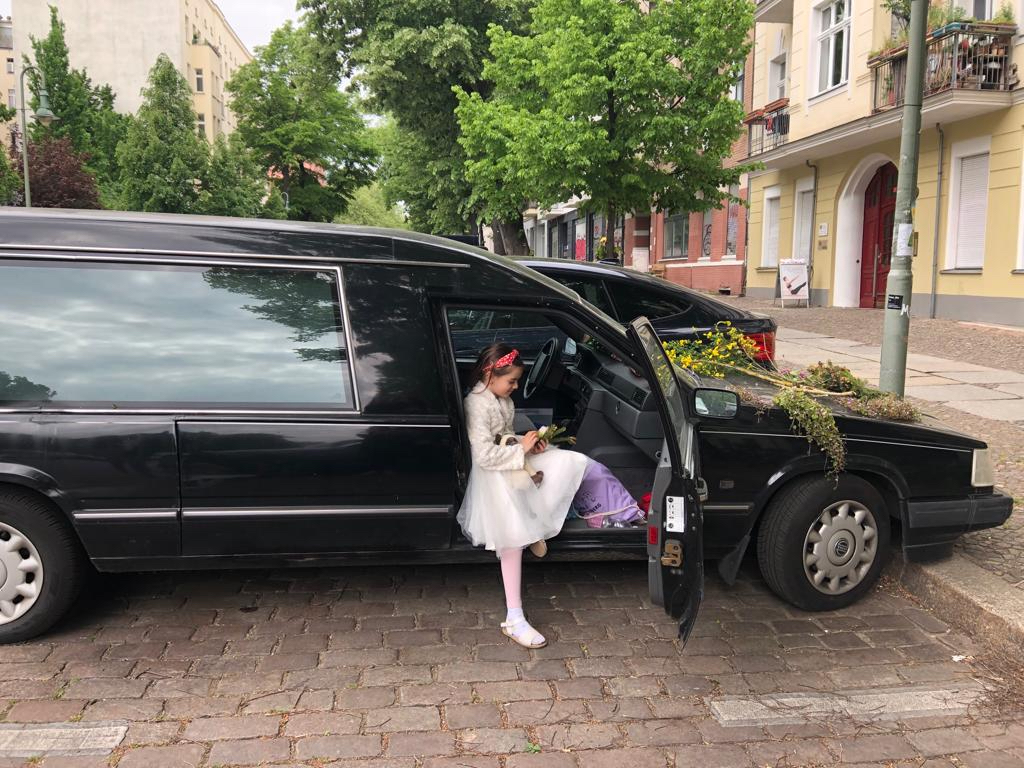Wie erkenne ich ein gutes Bestattungsinstitut, bei dem ich mich gut aufgehoben fühlen werde
Was suche ich und wo finde ich die Hilfe, die für mich passt?


1-EMPATHIE
Empathie spielt schon bei der ersten Begegnung mit Deiner Bestatterin eine zentrale Rolle, ob persönlich zu Hause, im Bestattungsinstitut, oder am Telefon.
Die Bestatterin, die ihren Job mit Leib und Seele macht, interessiert sich von Anfang an für Deine Belange. Sie möchte erfahren, wer die verstorbene Person war, genauso wie sie ein Gefühl für Euch als Angehörige und Freund:innen bekommen möchte. Jedes Leben ist ein Unikat, und somit sollte auch die Bestattung nicht nach Schema F organisiert sein. Schließlich will man mit der Bestattung auch das Leben seiner verstorbenen Liebsten feiern. Die emphatische Bestatterin sucht nach den Besonderheiten, die das Leben der verstorbenen Person ausgemacht haben, und arbeitet mit den Hinterbliebenen an Ideen, die den traurigen Tag der Beerdigung eine stimmige Erinnerung werden lassen. Die empathische Bestatterin nimmt Deine Sorgen an sich und verwandelt diese in Möglichkeiten.

2 – ZEIT
Dein Bestattungsinstitut macht es Dir möglich, mit genügend Zeit und nach Deinen Bedürfnissen Abschied zu nehmen.
36 Stunden. Dies ist die Zeit, die das Gesetz Dir für den Abschied von der verstorbenen Person erlaubt. Für 36 Stunden nach dem Tod darfst Du die Person, falls sie zu Hause gestorben ist und Du das wünschst, zu Hause behalten. Im Krankenhaus stehen Dir allerdings nur ein paar Stunden zur Verfügung – gerade, wenn Angehörige von weiter her kommen, kann das manchmal knapp werden. In den meisten Fällen ist es aber möglich, die verstorbene Person noch einmal nach Hause zu holen und dann von dort aus auf die letzte Reise zu schicken. Ein gutes Bestattungsinstitut findet mit Dir den richtigen Weg. Genügend Zeit für Abläufe, für Unsicherheiten, bis hin zu Lebensfragen, das macht ein Bestattungsinstitut mit Seele aus.

3 – SANFTHEIT
Eine gute Bestatterin geht mit den Verstorbenen so um, als ob sie schlafen würden.
Verstorbene sollen mit Respekt und Sanftheit behandelt werden. Die Bestatterin möchte die Totenruhe nicht mit unnötigen und abrupten Bewegungen stören, zerschneidet keine Kleider, wenn sie die verstorbene Person anzieht und wäscht sie zärtlich. Dabei spielt sie die Lieblingsmusik der verstorbenen Person. Bei all diesen Vorgängen dürft ihr Angehörigen dabei sein und mithelfen, wenn ihr es wünscht. Die Bestatterin begleitet Euch sanft bei diesem oft sehr eindrucksvollen und heilsamen Prozess. Und auch wenn ihr nicht selber dabei sein wollt, wird eine gute Bestatterin mit der gleichen Sanftheit und dem gleichen Respekt vorgehen.

4 – PERSÖNLICHKEIT
Ein Bestattungsinstitut mit Seele gestaltet mit Dir einen Abschied in Würde und mit Persönlichkeit.
In der Bestattungsbranche ist Würde ein gern genutztes Wort, um eine gewisse Ernsthaftigkeit und Schwere zum Ausdruck zu bringen. Für eine gute Bestatterin bedeutet „in Würde“ zu bestatten und Abschied zu nehmen, sich an der Persönlichkeit eines Menschen zu orientieren. Rockig, queer, bescheiden, opulent, laut, oder leise – der Umgang mit dem Tod darf so unterschiedlich sein wie die Persönlichkeiten der Menschen, die mit ihm umgehen. Würde ist in einem Bestattungsinstitut mit Seele Ausdruck einer Haltung, die den Fokus auf die Individualität von Verstorbenen und Hinterbliebenen legt, statt auf Traditionen und „das haben wir immer schon so gemacht“.

5 – BAUCHGEFÜHL
Vertraue auf Dein Bauchgefühl.
Wenn Du nach dem ersten Gespräch mit Deiner Bestatterin noch Unklarheiten oder Unsicherheiten hast, wird sie diese gern mit Dir klären. Wenn Dir Dein Bauch dann immer noch sagt, dass hier etwas nicht stimmig ist, solltest Du nicht zögern, Dich weiter umzusehen. Manchmal braucht es Umwege, um an den richtigen Ort zu gelangen.
Ein gutes Bauchgefühl, das einen durch alle Etappen einer Beisetzung begleitet, von der Abholung über die Trauerfeier bis hin zu der Zeit danach kann für die Hinterbliebenen und ihre Trauer Wunder wirken!
Gern finden wir gemeinsam mit Dir heraus, was Du brauchst.
Helena & Sarah von Magnolia Bestattungen
Erfahre hier mehr darüber, wie wir arbeiten.
Wir sind jederzeit für Dich erreichbar! Kontaktiere uns gern.

